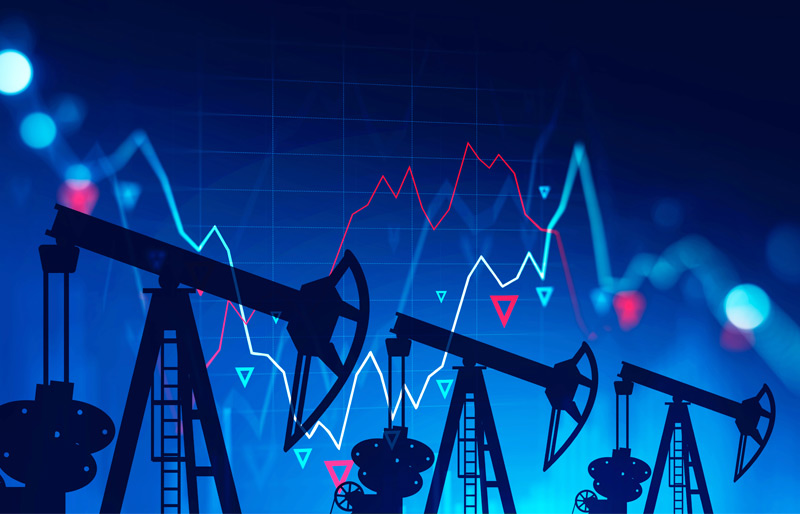
What does the future hold for Canadian energy?
In the challenging social and economic climate we’re all facing right now, there’s no straightforward way to the predict the future. But those who come closest are usually experts in financial forecasting, economic outlooks and data analysis who understand how to cut through the noise in moments of disruption.
Enter Derek Burleton, vice-president and deputy chief economist at TD Bank.
He’s an upcoming speaker at the Oil and Gas Conference in November. We had the opportunity to speak with him recently. Read on below for insights on pandemic recovery, what’s next for the energy sector in Canada, and the key variables you should keep your eyes on in the new year.
2020 has been a year of transformative change in almost every area of public life. We’ve witnessed considerable social and economic shifts, domestically and internationally – from the pandemic and politics to climate change and technology. How can the accounting profession work to build more resilience through uncertain times?
Few professions have as much of a deep understanding of their business as CPAs, in both a financial and an operational context. This leaves CPAs particularly well-equipped to add value during a period of high uncertainty by identifying issues, performing impact assessments caused by shifting government policies, and ensuring compliance with a variety of new regulatory developments.
During uncertain periods like the one we’re in now, the corporate premium goes up on advisory roles, budgeting, forecasting and cash management – which all fall within the accounting wheelhouse.
You and your team at TD Bank provide leading analysis about Canadian, American and global markets. What are some of the key economic indicators influencing the Canadian oil and gas sector over the next year that finance leaders should consider?
Predicting specific outcomes for 2021 is no easy task, especially given the uncertain path of the virus. But most economists are comfortable with the broad narrative that the global demand recovery will continue to grind forward. TD’s economic projections have built in the assumption that a vaccine will become available by mid-2021, which should set the stage for a stronger end to next year.
In a post-vaccine environment, commodity markets would likely witness some modest rise in oil and gas prices. A forecast I feel particularly confident in is interest rates. Central banks are signalling a desire to hold short-term rates at their effective zero bound over the next few years.
The geopolitical landscape also remains a wild card. Regardless of who controls the White House and Congress after the election, I do expect another important fiscal package to be legislated, which will help to keep U.S. recovery on track next year. More generally, with markets turning a blind eye to government borrowing, fiscal pump priming will remain a key support to a world that otherwise faces many downside risks.
This past July marked the tenth anniversary of the last most significant tax reform change made in Ontario. Are there lessons from that experience, and the report you worked on with Don Drummond, that can be applied today in the wake of different financial crises?
Even ten years later, I am bewildered that the HST reform recommendation would ever see the light of day. The economic rationale behind the change was overwhelming, but it was long considered political suicide given that parts of the economy would face some negative near-term adjustments. The Ontario provincial government pushed ahead anyway, introducing some creative policies that helped to address some of the concerns, and the voices of opponents eventually grew quiet.
That experience provides some good lessons. Bold policy moves will be required in the coming years to tackle key challenges such as competitiveness, climate change and income inequality. I do think that one of the key challenges facing Canada is how we as a nation can put aside partisanship and intergovernmental bickering to develop an action plan and confront these huge issues.
We’re looking forward to having you join us virtually for the Oil and Gas Conference this fall! What can attendees look forward to in your keynote?
Thanks! My goal is to assess where we are in the recovery cycle and how key international events in the coming months – the U.S. election, Brexit, China – could affect Canada going forward. As always, I like to provide audiences with the kind of indicators, both traditional and newer, in real time, that we tend to focus on as economists. Lastly, I will boil down what the emerging global landscape likely means for the oil and gas sector outlook.
To learn more about what lies ahead for the energy sector, come take a deeper look at Canada’s economic forecast with Derek at the Oil and Gas Conference. Tune in from anywhere for the live virtual event November 19-20, 2020.